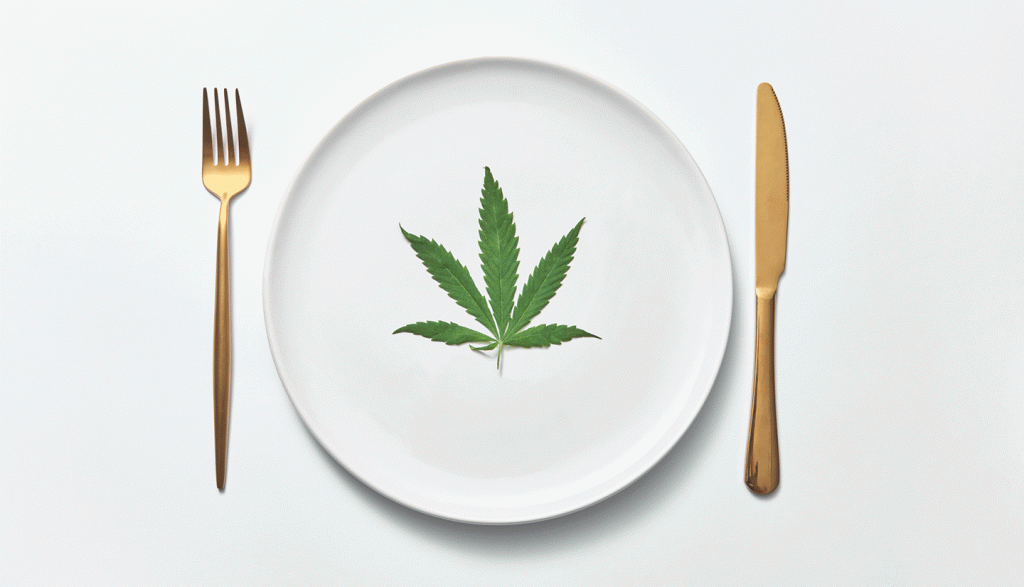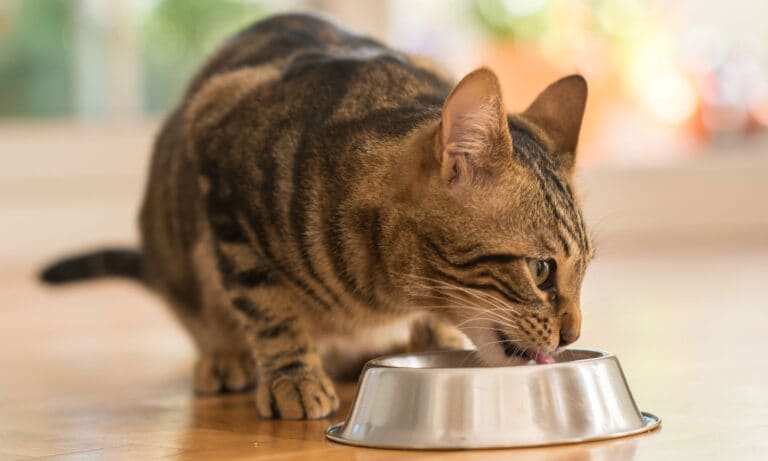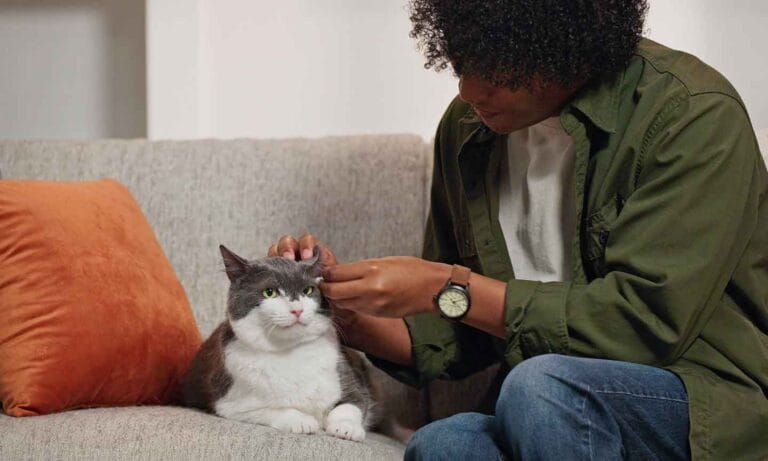There are countless dietary supplements out there for your pet, but one that’s quickly gaining trending status is hemp oil. Maybe you’ve heard of it and its versatile benefits in the human wellness space, but if you didn’t know that your fur baby could benefit from hemp oil for dogs and cats too, we’re here to give you the lowdown.
From its potentially health-boosting abilities to dosage information, here’s what pet parents need to know about hemp oil for dogs and cats.
First thing’s first: What is hemp oil?
Hemp oil is more of an umbrella term for oil—namely CBD oil and hemp seed oil—that is extracted from parts of the hemp plant.
CBD (cannabidiol) oil is derived from the stalks, leaves and buds of the hemp plant. It contains trace amounts of THC, although, no, it won’t get you or your pet high, as the 2018 Farm Bill only legalized CBD oils with less than 0.3% THC. It is used to help with various health issues, such as pain management.
Hemp seed oil, which we’ll be focusing on today, is made by cold pressing the seeds of the hemp plant, which do not have THC and have no more than just trace amounts of CBD. (So, again, no, it won’t get you—or your pet—high!) Hemp seed oil is FDA-approved and legal to buy and sell, and is used as a health-boosting supplement for both people and pets.
Hemp seeds, often referred to as hemp hearts, are technically nuts, and you’ve probably seen them in the grocery store, along with hemp sed oil. They’re super nutritious, being rich in omega-6 and omega-3 fatty acids, and are a great source of protein, vitamin E, phosphorus, potassium, sodium, magnesium, sulfur, calcium, iron and zinc, making hemp seed oil similarly nourishing.
So, what are the benefits of hemp seed oil for pets?
Not just a mainstay of your grocery store shelves, hemp seed oil is actually an up-and-coming ingredient in pet supplements: “When hemp seed oil is used as a supplement in a pet’s diet, pet parents may see positive changes,” says Dr. Lindsay Butzer, DVM, spokesperson for Zesty Paws. “Hemp seed oil has excellent sources of essential fatty acids, omega-3 and omega-6, protein, antioxidants, vitamins and minerals, which are all good for your pet.”
Dr. Katy Nelson, DVM, an associate veterinarian at the Belle Haven Animal Medical Centre in Alexandria, Virginia, and Chewy’s resident senior veterinarian, says hemp seed oil is similar to fish oil in that it can be an immune-booster and help reduce inflammation caused by various skin and joint issues, as well as lessen allergy symptoms and improve your pet’s coat. You may also see hemp seed oil included in some calming pet supplements, alongside anxiety-relieving ingredients like chamomile.
But is hemp seed oil safe for pets?
Hemp seed oil is generally considered safe for pets, but you should get the green light from your vet before adding it to your pet’s diet. (And that goes for any additional supplement!)
Dr. Nelson says there’s really not a lot that can go wrong with hemp seed oil unless you’re improperly dosing it. (More on that further down!)
“The omega-3 [in hemp seed oil] can actually be pro-inflammatory, so too much omega-3 can have the reverse effect of why we’re giving it,” she says. “Too much of something can be just as detrimental as having too little when it comes to supplements.”
Dr. Nelson adds that too much hemp seed oil can also cause your pet to get an upset stomach and diarrhea.
Any hemp seed oil or product containing hemp seed oil that you give your pet should be formulated just for them. Never attempt to give your own (human) supplement to your pet. While you may share almost everything with your furry friend, it’s best to only give them supplements intended for their consumption and that have their entire ingredients list approved by your vet.
“When products are created for animal use versus human use there are usually different formulations used which would benefit animals specifically,” explains Dr. Butzer.
What’s the appropriate hemp seed oil dosage for pets?
When it comes to giving your pet hemp seed oil, Dr. Nelson stresses the importance of following the dosing instructions on the product label.
“Each product will have different concentrations [of hemp seed oil], formulations, and other things added,” says Dr. Nelson.
Since the dosage for most pet products is based on weight, Dr. Nelson says it’s very important to know how much your pet currently weighs. Don’t guess! If your pet’s weight is close to the top or bottom of the range listed on the back of the package, it could mean you’re accidentally giving them too little or too much of a product.
OK, but how can hemp seed oil help YOU?
If you’re considering using hemp seed oil yourself, you’re in luck—there are a myriad of ways to incorporate it into your daily life.
If you have high cholesterol, “hemp seed oil has been shown to decrease cholesterol markers, which can reduce the risk of heart disease,” says Dr. Brynna Connor, MD, a healthcare ambassador at online pharmacy NorthWestPharmacy.com.
You can buy bottled hemp seed oil online or in some grocery stores and use it in cooking to make salad dressing, smoothies, dips and more. (Just like you would for your pet, make sure to get the OK from your doctor before adding any new supplements to your diet.)
Hemp seed oil is also found in some beauty products for its hydrating and anti-inflammatory qualities, and Dr. Connor says it can be used topically for skin conditions such as atopic dermatitis. Of course, as with any new beauty product, always test a bit on a small area of skin to see if you have a reaction.
Sounds great! What are the best hemp oil products for dogs and cats?
The best hemp seed oil product for your pet will really depend on whether you’re looking to treat a condition, like allergies, or just want to add a nutritious supplement to your pet’s diet. Talk to your vet about the best option for your pet’s lifestyle.
For Hips and Joints:
For an All-Around Health Boost:
For Dental and Breath-Freshening Needs:
For Anxiety Relief:
Share:












